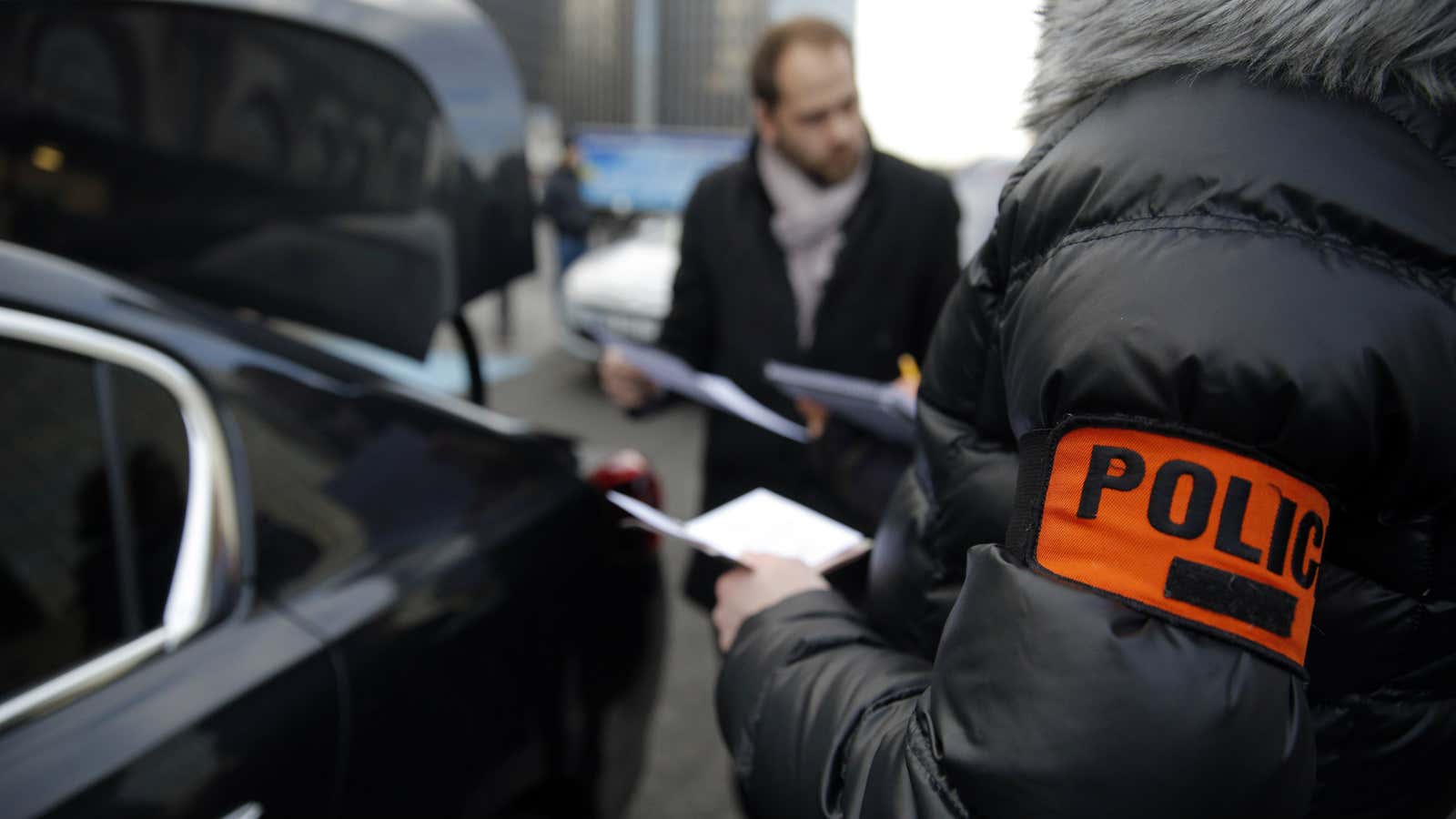Uber’s fortnight of scandal just got a whole lot worse: The New York Times just revealed the existence of an uber-creepy company tool called “Greyball” that tracks the phones of police and hostile local government officials.
The company has been known to push the boundaries of tracking users. It alarmed privacy watchdogs late last year by eliminating an iOS setting that let users grant the company access to their location only “while using” the app. Users are now forced to choose between letting Uber track their location “always” and “never.” Uber was also famously criticized for stalking user locations using a tool it called “God View.”
It’s been unclear how that type of information might be used, but here’s something that few might have imagined: Uber has been systematically trying to deny rides to police and officials in “hostile” cities like Portland, Oregon, which tried to ban its services, due to fears that they could mount sting operations and fine or arrest drivers.
To do so it went to some pretty crazy lengths, including digitally surveilling which people frequented government buildings, and trying to suss out what kind of “burner” phones might be used in sting operations.
The Times’ Mike Isaac reports that one Greyball technique involved setting a “geofence” around the offices of local regulators who were trying to crack down on Uber. The company then “watched which people frequently opened and closed the app—a process internally called “eyeballing”—around that location.”
When Uber did identify a police officer or hostile local official, it would “scramble a set of ghost cars inside the user’s app, or falsely show that no cars were available.
Another technique was to track the burner smartphones that city officials would buy in bulk when they tried to mount sting operations against Uber drivers. The company would then go to local electronics stores and figure out which models were being sold most cheaply, and block those devices from hailing a ride.
The company said in a statement to Quartz: “This program denies ride requests to users who are violating our terms of service — whether that’s people aiming to physically harm drivers, competitors looking to disrupt our operations, or opponents who collude with officials on secret ‘stings’ meant to entrap drivers.”
Some Uber employees who knew about Greyball—presumably the same ones who leaked it to the Times—“had qualms about whether it was ethical or legal.”
Depending on local laws, one law professor told the Times the program could be “a violation of the federal Computer Fraud and Abuse Act, or possibly intentional obstruction of justice.”
But either way it’s a bad look for a massive company that has engendered a huge amount of ill will and distrust (#DeleteUber) in the last few months. It confirms the worst fears of everyone who has ever suspected that the company’s questionable tactics are simply not worth the moral trade-off of getting cheap and convenient car rides.
